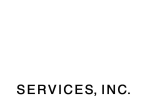
Ella Fishman T: 310.201.0010 F: 310.201.0016 ella@adrservices.com ADR Services
Suite 200
1900 Avenue of the Stars
Los Angeles, CA 90067-4303 |
 Mediation Tips - Final Preparations
Client Preparation ChecklistHere is the checklist for the pre-mediation meeting with your client. Discuss and explain these subjects:
Give your client the following:
Finally, agree when, where and at what time you will meet the client before the mediation and exchange cell phone numbers, just in case there is a hiccup in the plan. Draft a Deal MemoA deal memo sets out the key points necessary to complete a transaction. By drafting a deal memo before a mediation, you can advance your case in three stages.
This three step process takes advantage of the psychological principle, “when you control the process, you control the result.” The deal memo sets the tone for and controls the mediation, increasing your opportunity for a favorable outcome. Bring a Settlement Agreement on DiskMany mediations are needlessly extended, negotiating details and documenting the settlement. Once the basic deal is agreed to, circulate the draft settlement agreement. This focuses and accelerates the final negotiations and documentation process. With the universal use of Word or WordPerfect, the final settlement agreement can be revised, printed, signed and distributed at the mediation's close. Line up the LiensMany cases cannot be settled without resolving liens, e.g. worker’s compensation, government retirement funds, prior attorneys and medical payments (auto, private insurance, MediCare and MediCal). Before the mediation, determine the amount of any liens, the contact person for negotiating the lien and, if possible, the negotiating parameters. Decide if the lien claimant needs to participate in the mediation and if so, in person or by telephone. MediCare and MediCal generally will not negotiate their liens until after the case is settled. Tip to plaintiffs’ counsel: Controlling lien claimants usually enhances the plaintiff’s net recovery and lien claimant’s counsel can provide help with trial costs. Tip to defendants’ counsel: Purchasing liens at discount generates credits against a judgment and removes lien claimant’s counsel from the case. Understand the Insurance IssuesUnderstanding insurance issues (coverage, limits and consent) promotes communication focused on resolution. Knowing if a loss is covered, partially covered, questionably covered or not covered encourages realistic dialogue about trial direction, scope of defense, probability of collection and settlement. What’s the Plan?The business adage, “Plan your work and work your plan” applies equally to mediation. Here are some thoughts to shape your mediation plan.
Back-up plan: If the case is not going to settle, what can you accomplish during the mediation to make the matter resolve more favorably, faster and with less expense? No mediation is a waste of time. There is always information to be gained about the other side’s view of the facts and law. Discovery can be ordered and focused. And the dollar gap can be narrowed. Don’t Serve Documents at MediationsDo not serve CCP 998 offers, discovery or other pleadings during a mediation. Evidence Code §1119 makes all documents at a mediation confidential and therefore not usable in subsequent enforcement and/or motion practice. Consider Tax Issues Prior to MediationOften tax issues drive settlements in employment, business and family law matters. If litigation counsel does not possess tax expertise, it is best to consult with tax experts prior to the mediation. Armed with tax options, litigation counsel can protect the client from adverse tax consequences and work toward the most tax advantaged resolution. Bring a BookLawyers know that there is lots of downtime at a mediation, so they handle email on their Blackberries, bring work to catch up on and make phone calls. Make Your Luck!We want to believe that good results are a function of skill. However, luck also plays a part. Some people are lucky and some aren't. [alt: Why are some people lucky and other’s aren’t? It turns out that how we regard ourselves has a lot to do with how lucky we are. British psychologist, Richard Wiseman conducted a fascinating experiment where he had people self-identify as lucky or unlucky. Then they were assigned to count the pictures in a mock newspaper. On an inside page he placed a half-page ad in 2-inch type stating:, "STOP COUNTING, TELL THE EXPERIMENTER YOU HAVE SEEN THIS AND WIN £250." A high percentage of the lucky spotted the ad, while almost none of the unlucky ones did. How can we shift our mindset to lucky?
Openness, hard work and decisiveness are the hallmarks of lucky people. Cultivate these qualities and bring out the lucky person in you.
Copyright ©
, Ralph O Williams III |
